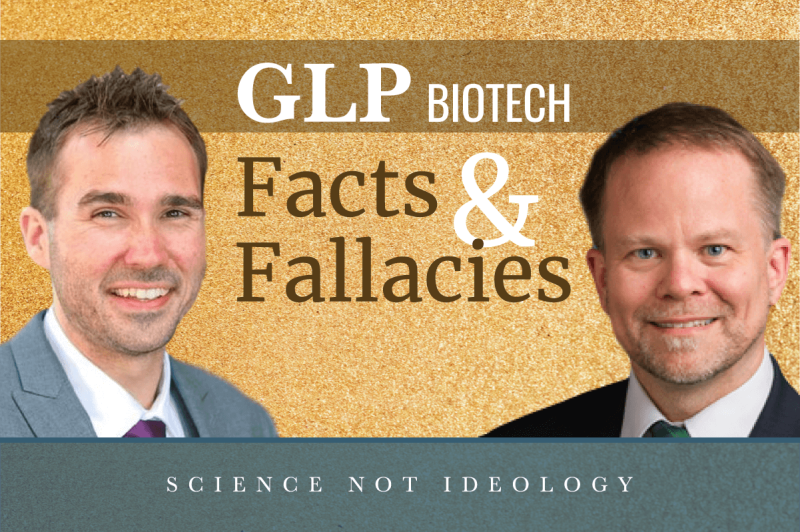Podcast: Play in new window | Download
Subscribe: RSS
Join geneticist Kevin Folta and GLP contributor Cameron English on episode 194 of Science Facts and Fallacies as they break down these latest news stories:
Repeating recent history, the New York Times last week attacked a widely respected scientist for allegedly taking money from corporations to defend their products. “He’s an Outspoken Defender of Meat. Industry Funds His Research, Files Show,” the paper wrote about UC Davis air-quality specialist Dr. Frank Mitloehner. The problem? Nearly everything in the story was completely false.
Insulin produced from genetically engineered microbes hit the market roughly four decades ago. It greatly expanded access to the hormone and earned regulatory approval in a record-breaking five months, instead of the usual 30 months. According to the FDA scientist who oversaw the approval of this novel drug, known commercially as “Humulin,” the story illustrates the power of biotechnology to save lives—and how unnecessary regulation can stifle innovation.
Gene therapies for debilitating diseases are poised to change the way we think about medicine forever—at least that’s what we’ve been told for many years. Despite all the hype, just four gene therapies have received regulatory approval in the US. Why have these drugs advanced at a snail’s pace?
Cost is one barrier, says geneticist Ricki Lewis. There are also questions about the efficacy of gene therapies; for instance, are their effects long lived, and how many patients will respond to said treatments? Can scientists and regulators overcome these challenges? There is hope that the expanding toolbox of genetic technologies will accelerate the development and approval of additional gene therapies.
Kevin M. Folta is a professor, keynote speaker and podcast host. Follow Professor Folta on Twitter @kevinfolta
Cameron J. English is the director of bio-sciences at the American Council on Science and Health. Visit his website and follow ACSH on Twitter @ACSHorg































